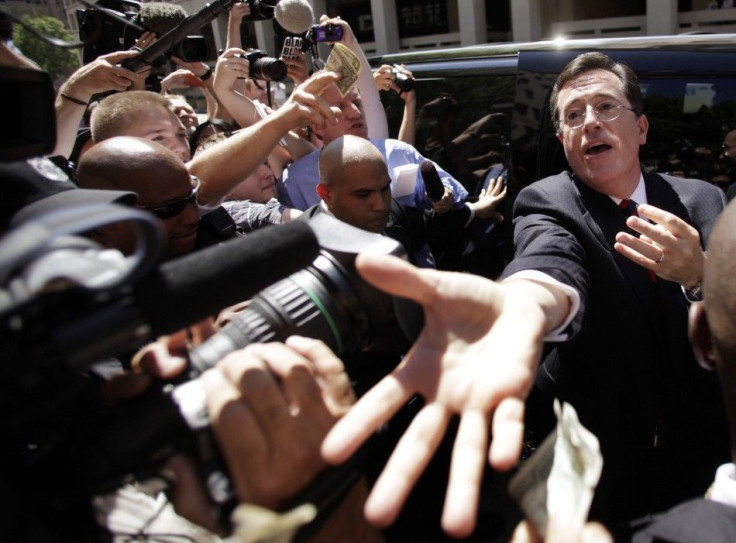Stephen Colbert for President: He Can't Run, but That's Not the Point

Sorry, Stephen Colbert fans: The Colbert Report host can't run for president in his home state of South Carolina, despite polls showing him ahead of Jon Huntsman and despite his transferring control of his super PAC to Jon Stewart.
The reason is simple: The deadline to file for inclusion on the South Carolina primary ballot was Nov. 1, and Colbert missed it. So his name won't be listed come Jan. 21, and unlike some other states, South Carolina does not have a write-in option. Its voting machines just won't let anyone vote for Colbert.
Stephen Colbert has about as much chance of being elected president in South Carolina as he has of being elected pope, Matt Moore, executive director of the South Carolina Republican Party, told CBS News.
Ouch.
Colbert's problem is much like Newt Gingrich's and Rick Perry's in Virginia: Neither candidate submitted 10,000 valid voter signatures by the state's Dec. 22 deadline, and Virginia, too, forbids write-ins, so the two would-be nominees essentially forfeited the state and its 50 delegates to the Republican National Convention before the primaries even began.
It is very different, however, in that for Colbert, unlike Gingrich and Perry, winning the primaries wasn't actually the point. Colbert is a satirist, not a politician. His deliberately over-dramatized announcement was not meant as the opening act of a serious campaign -- which is not to say that he wouldn't have put his name on the ballot if he could have, but his primary goal (no pun intended) lies elsewhere.
That goal, it seems, is to draw attention to some of the absurdities of the 2012 race, most prominently the crash-landing of super PACs on the campaign trail.
Every candidate has at least one of these super PACs -- shadowy organizations with no fundraising limits that were authorized by the Supreme Court's corporations are people ruling in the 2010 Citizens United case -- and it is these organizations, not the candidates themselves, that are now doing most of the dirty work of negative campaigning, allowing the candidates to tar and feather their opponents while keeping their own hands technically clean.
During his televised announcement, Colbert transferred control of his own super PAC to Daily Show host Jon Stewart so that he could legally run for president. Federal law prohibits coordination between candidates, and the super PACs that support them, but Colbert and Stewart mocked the idea that candidates follow that law.
Stewart informed viewers that the name of the super PAC had been changed to the Definitely Not Coordinating with Stephen Colbert Super PAC and added, Stephen and I have in no way have worked out a series of Morse-code blinks to convey information with each other on our respective shows.
The reality is that, despite the law, super PACs are often run by former campaign employees who are intimately familiar with a candidate's goals and strategies. And if Colbert can draw widespread attention to that, along with the other ethical and logistical pitfalls of super PACs, his presidential bid will have been a success even if it never actually happens.
--
© Copyright IBTimes 2024. All rights reserved.











